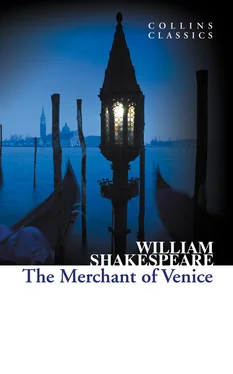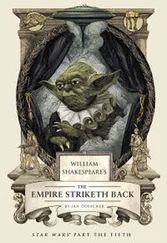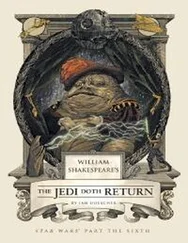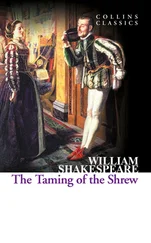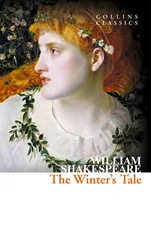In fact, we only know of Shakespeare’s work because two of his friends had the foresight to collect his plays together following his death and have them printed. The only reason they did so was apparently because they rated his talent and thought it would be a shame if his words were lost.
Consequently his body of work has ever since been assessed and reassessed as the greatest contribution to English literature. That is despite the fact that we know that different printers took it upon themselves to heavily edit the material they worked from. We also know that Elizabethan plays were worked and reworked frequently, so that they evolved over time until they were honed to perfection, which means that many different hands played their part in the active writing process. It would therefore be fair to say that any play attributed to Shakespeare is unlikely to contain a great deal of original input. Even the plots were based on well known historical events, so it would be hard to know what fragments of any Shakespeare play came from that single mind.
One might draw a comparison with the Christian bible, which remains such a compelling read because it came from the collaboration of many contributors and translators over centuries, who each adjusted the stories until they could no longer be improved. As virtually nothing is known of Shakespeare’s life and even less about his method of working, we shall never know the truth about his plays. They certainly contain some very elegant phrasing, clever plot devices and plenty of words never before seen in print, but as to whether Shakespeare invented them from a unique imagination or whether he simply took them from others around him is anyone’s guess.
The best bet seems to be that Shakespeare probably took the lead role in devising the original drafts of the plays, but was open to collaboration from any source when it came to developing them into workable scripts for effective performances. He would have had to work closely with his fellow actors in rehearsals, thereby finding out where to edit, abridge, alter, reword and so on.
In turn, similar adjustments would have occurred in his absence, so that definitive versions of his plays never really existed. In effect Shakespeare was only responsible for providing the framework of plays, upon which others took liberties over time. This wasn’t helped by the fact that the English language itself was not definitive at that time either. The consequence was that people took it upon themselves to spell words however they pleased or to completely change words and phrasing to suit their own preferences.
It is easy to see then, that Shakespeare’s plays were always going to have lives of their own, mutating and distorting in detail like Chinese whispers. The culture of creative preservation was simply not established in Elizabethan England. Creative ownership of Shakespeare’s plays was lost to him as soon as he released them into the consciousness of others. They saw nothing wrong with taking his ideas and running with them, because no one had ever suggested that one shouldn’t, and Shakespeare probably regarded his work in the same way. His plays weren’t sacrosanct works of art, they were templates for theatre folk to make their livings from, so they had every right to mould them into productions that drew in the crowds as effectively as possible. Shakespeare was like the helmsman of a sailing ship, steering the vessel but wholly reliant on the team work of his crew to arrive at the desired destination.
It seems that Shakespeare certainly had a natural gift, but the genius of his plays may be attributable to the collective efforts of Shakespeare and others. It is a rather satisfying notion to think that his plays might actually be the creative outpourings of the Elizabethan milieu in which Shakespeare immersed himself. That makes them important social documents as well as seminal works of the English language.
Money in Shakespeare’s Day
It is extremely difficult, if not impossible, to relate the value of money in our time to its value in another age and to compare prices of commodities today and in the past. Many items are simply not comparable on grounds of quality or serviceability.
There was a bewildering variety of coins in use in Elizabethan England. As nearly all English and European coins were gold or silver, they had intrinsic value apart from their official value. This meant that foreign coins circulated freely in England and were officially recognized, for example the French crown (écu) worth about 30p (72 cents), and the Spanish ducat worth about 33p (79 cents). The following table shows some of the coins mentioned by Shakespeare and their relation to one another.
A comparison of the following prices in Shakespeare’s time with the prices of the same items today will give some idea of the change in the value of money.
In March 1814, Jane Austen took her niece to see Edmund Kean perform in The Merchant of Venice , ‘a good play for Fanny – she cannot be much affected, I think’. Perhaps she considered comedy less likely than tragedy to arouse strong passions. Times have changed. There can be no question now as to this play’s ability to kindle late-twentieth-century emotions. One recent essay brands it ‘profoundly and crudely anti-Semitic’ (Cohen, 1988).
Opposing views of The Merchant of Venice take their cue from the play’s rival centres of control, for it is a drama with two directors, each pulling strongly for different generic destinations. Shylock will have a tragic melodrama, with himself as knife-whetting villain and Antonio as victim. The latter indeed seems not unattracted to a role which allows him a momentary centrality denied him in the rest of the play. Portia, on the other hand, manoeuvres the plot and its characters inexorably towards a comic resolution.
On the structural level The Merchant of Venice unquestionably is a comedy. It contains all the standard elements: lyrical courtship, fairy-tale plot, obstructions to overcome, and a happy ending in the escapist world of Belmont. But as it proceeds, the play invites us to reassess our opinions, to revalue the very conventions on which it builds. Romance is both glamorous and superficial. We are assailed by the discrepancy between what is reported (Shylock ludicrously confusing daughter and ducats) and what is seen (Shylock grieving over memories of a ring), between expectation and disappointment (a masque is arranged only to be abandoned at the last moment). Nor can we overlook the niggling co-existence of the attractive and the repellent: Bassanio is lover and thoughtless spendthrift, Antonio respected merchant and anti-Semite, Portia intelligent heroine and calculating deceiver. But Shylock himself is the play’s sternest challenge to comic optimism.
The growing tension between light comedy and something darker is reflected in the contest between speech styles which comes to a head in the trial scene (4.1). The language of up-market Venice and Belmont draws on the earlier comedies and the Sonnets: a rhetoric of romance, chiselled metaphor and self-conscious wit. Against this Shylock articulates a slow, gritty language of almost scientific precision, fiscal prudence, and grave austerity. The Duke’s conciliatory words aim to steer him from vengeance to mercy by means of the rhetoric of public approbation and veiled threat: the world, he insists, looks for ‘remorse’, ‘human gentleness and love’, ‘an eye of pity’, ‘tender courtesy’, and ‘a gentle answer’. Othello, another outsider in Renaissance Italy, has deliberately cultivated the Venetian graces: Shylock, just as resolutely, has not. His ‘answer’ (a word he reiterates like a remorselessly prodding finger) would wither any olive branch. A wilfully ugly diction, barren of metaphor, displays his contempt for Venetian elegance: ‘rat’, ‘gaping pig’, ‘cat’, ‘bagpipe’, ‘urine’ – these are his verbal counters. And Antonio putrifies before our very eyes into ‘a weight of carrion flesh’. While the young lovers in the play happily discover both romance and riches, Shylock proves unexpectedly indifferent to financial gain. All he has is ‘a lodged hate and a certain loathing’ – inexplicable and therefore beyond the reach of rational, economic or emotional appeal. His proud Jewish separatism divorces him not only from Venetian vocabulary but ultimately from common humanity.
Читать дальше
